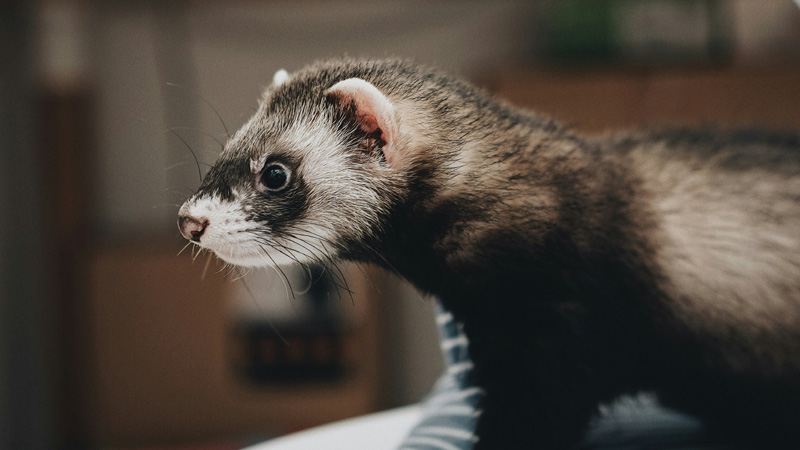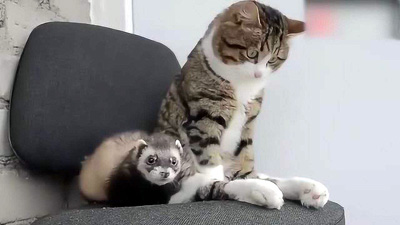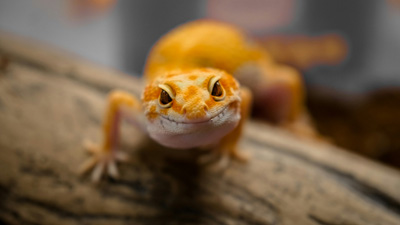Are Ferrets Good Pets? Exploring the Pros and Cons

Photo by Steve Tsang on Unsplash
Ferrets, those charming and curious members of the weasel family, have captured the hearts of pet enthusiasts worldwide. With their playful nature and affectionate demeanor, it's no wonder that many people are drawn to the idea of bringing these small carnivores into their homes as pets. However, like any animal companion, ferrets come with their own set of unique characteristics and care requirements.
In this comprehensive exploration, we'll delve into the pros and cons of ferret ownership to help you determine whether these furry creatures are the right fit for your lifestyle.
The Pros of Ferret Ownership
1. Affectionate and Playful Companionship
Ferrets are incredibly social animals that form strong bonds with their human caregivers. They thrive on interaction and enjoy spending time playing, cuddling, and exploring. Their playful antics provide endless entertainment and joy to their owners, making them delightful companions for individuals or families with the time and energy to engage with them.
2. Low Maintenance
Compared to other pets like dogs or cats, ferrets are relatively low maintenance. They don't require daily walks, and their grooming needs are minimal. Regular nail trimming, ear cleaning, and occasional bathing are usually sufficient to keep them healthy and clean. Additionally, ferrets can be litter trained, making cleanup easier and less time-consuming.
3. Intelligence and Trainability
Despite their small size, ferrets are highly intelligent animals. They can be trained to perform tricks, use a litter box, and even respond to their names. With patience, consistency, and positive reinforcement, ferrets can learn various behaviors and commands, enhancing the bond between owner and pet.
4. Long Lifespan
Compared to other small mammals like hamsters or guinea pigs, ferrets have a relatively long lifespan. With proper care and attention, they can live anywhere from 6 to 10 years or even longer in some cases. This longer lifespan allows for a more enduring companionship with your furry friend.
5. Unique Personality
Each ferret has its own distinct personality, ranging from mischievous and outgoing to more laid-back and cuddly. Their individual quirks and behaviors can make them fascinating companions, providing endless opportunities for learning and bonding.
The Cons of Ferret Ownership
1. Potential Risks To Children
While ferrets are undoubtedly charming and playful, they can be challenging to handle, especially for inexperienced owners. Their high energy levels and quick movements can make them difficult to control, particularly for children who may not understand how to interact with them safely. Additionally, ferrets have sharp teeth and may bite if startled or handled roughly, posing a potential risk to young children.
2. High Energy Levels
Ferrets are incredibly energetic animals that require ample space to play and explore. Without sufficient mental and physical stimulation, they may become bored and exhibit destructive behaviors such as chewing or digging. Owners must be prepared to provide plenty of toys, playtime, and enrichment activities to keep their ferrets happy and healthy.
3. Specialized Diet Requirements
As obligate carnivores, ferrets have specific dietary needs that differ from those of other common household pets. Their diet should consist primarily of high-quality meat-based foods to ensure proper nutrition and prevent health issues. Additionally, ferrets have a fast metabolism and require frequent meals throughout the day, making feeding schedules more demanding than with other pets.
4. Odor Control
One common concern associated with ferret ownership is their distinct musky odor. Ferrets have scent glands that produce a natural musk, which can become more pronounced if not properly managed. Regular cleaning of their bedding, litter box, and living environment can help minimize odor, but some individuals may still find the smell unpleasant.
5. Potential Health Issues
Like all pets, ferrets are susceptible to certain health problems, including adrenal disease, insulinoma, and gastrointestinal issues. Routine veterinary care, including vaccinations and check-ups, is essential to detect and treat any health issues early on. Additionally, the cost of veterinary care for ferrets can be higher than for other small pets, so prospective owners should be prepared for potential medical expenses.
6. Legal Restrictions
In some areas, owning a ferret as a pet may be subject to legal restrictions or regulations. Before bringing a ferret into your home, it's crucial to research local laws and regulations regarding exotic pet ownership to ensure compliance and avoid any potential legal issues.
Conclusion
In conclusion, ferrets can make wonderful pets for the right individuals or families willing to provide them with the care, attention, and enrichment they need. Their affectionate nature, intelligence, and unique personality traits can bring joy and companionship to their owners for many years.
However, potential owners should carefully consider the responsibilities and challenges associated with ferret ownership, including their high energy levels, specialized diet requirements, and potential health issues. With proper care and commitment, ferrets can be rewarding and fulfilling pets that enrich the lives of their human companions.
You May Also Like
 Other PetsWhy Are Ferrets Illegal in the US?
Other PetsWhy Are Ferrets Illegal in the US? Other PetsDo Ferrets Get Along with Cats?
Other PetsDo Ferrets Get Along with Cats? Other Pets5 Fascinating Facts About Ferrets, Did You Know?
Other Pets5 Fascinating Facts About Ferrets, Did You Know? Help & AdviceExploring 6 of The Friendliest Small Pets
Help & AdviceExploring 6 of The Friendliest Small Pets Help & AdviceTop 10 Exotic Pets Perfect for Apartment Living
Help & AdviceTop 10 Exotic Pets Perfect for Apartment Living Help & AdviceExploring 10 Easiest Exotic Pets to Take Care Of
Help & AdviceExploring 10 Easiest Exotic Pets to Take Care Of